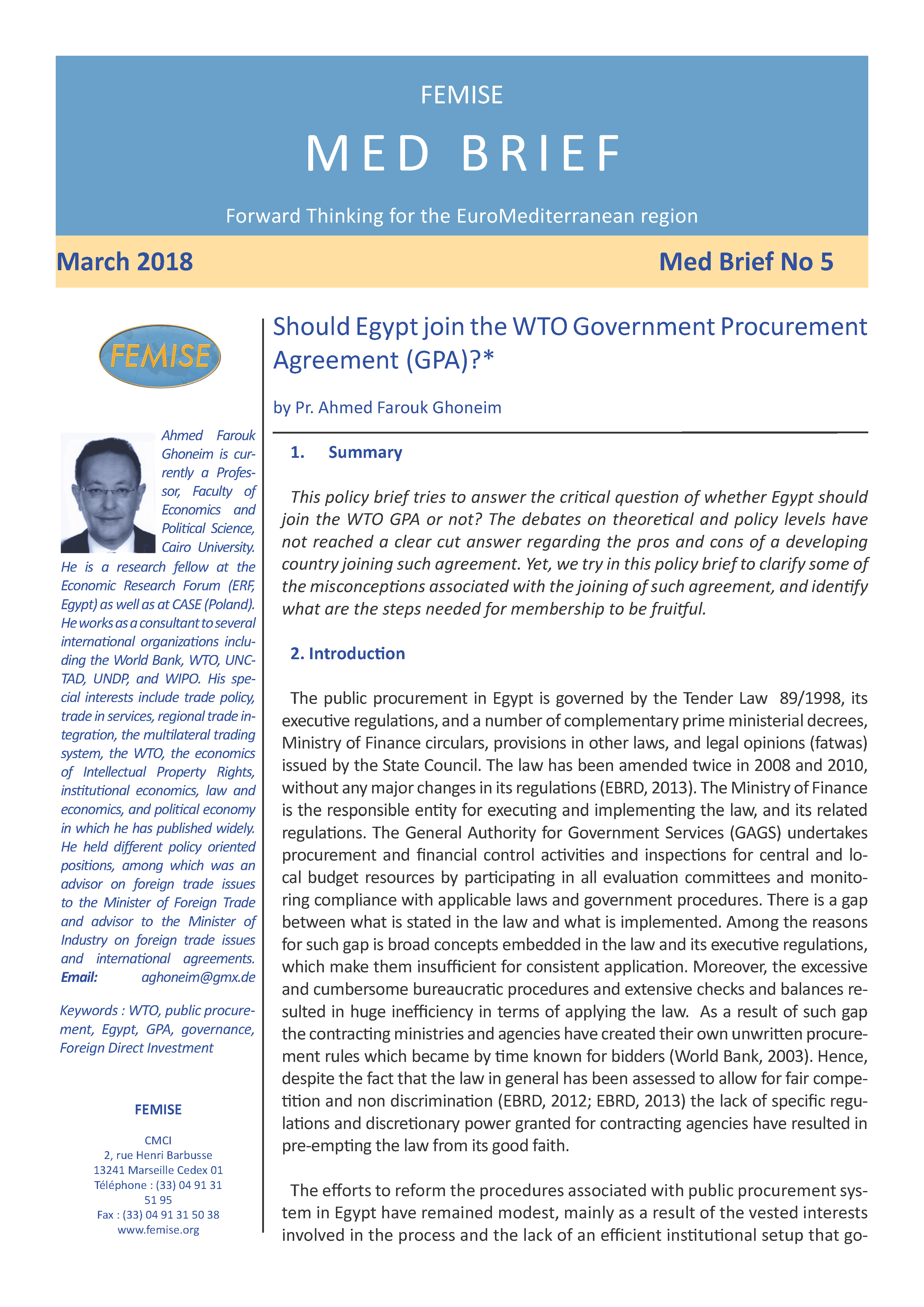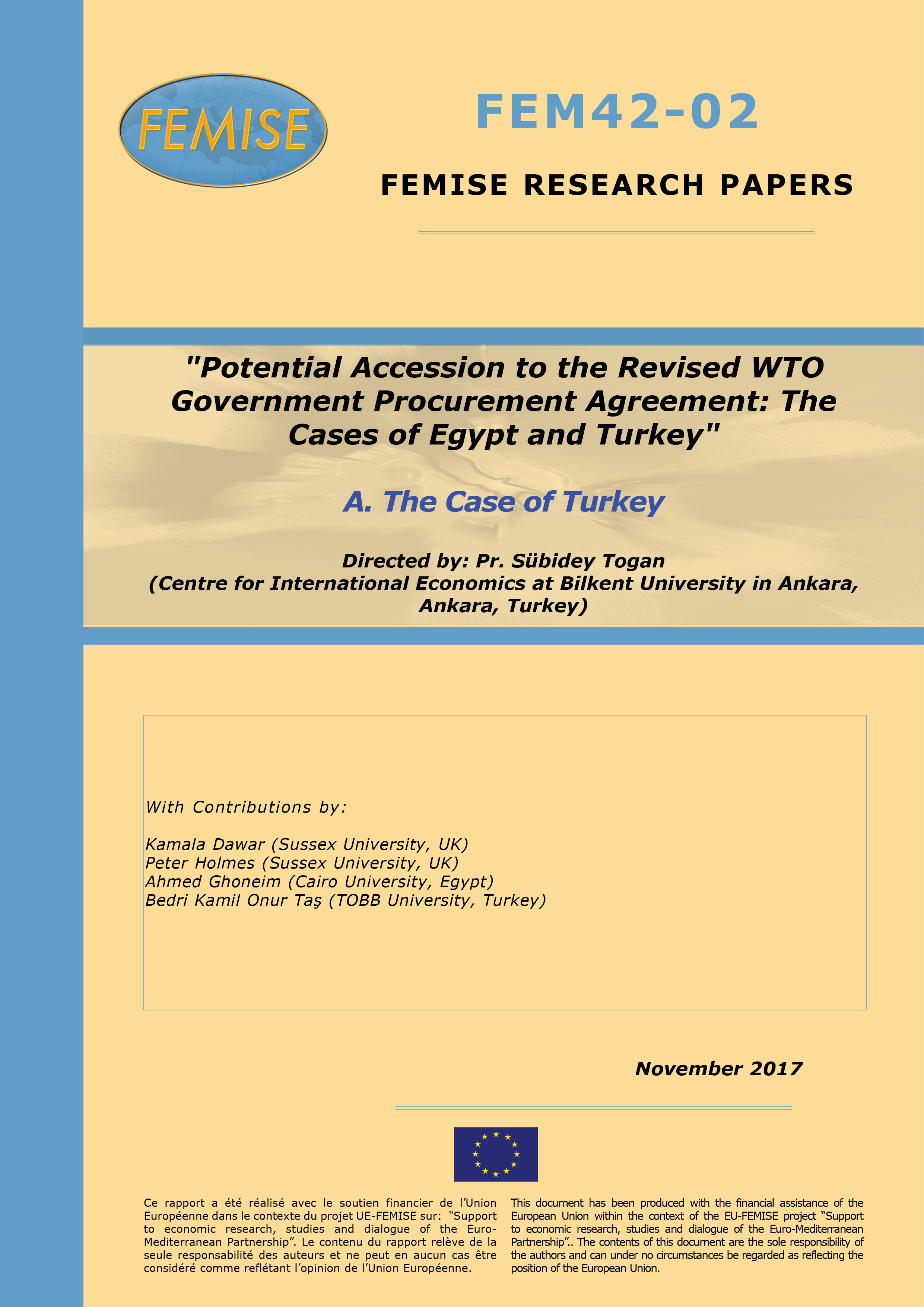
FEMISE is launching its new Policy Brief series MED BRIEF aspiring to provide Forward Thinking for the EuroMediterranean region. The briefs contain succinct, policy-oriented analysis of relevant EuroMed issues, presenting the views of FEMISE researchers and collaborators to policy-makers.
The fifth issue of MED BRIEF “ Should Egypt join the WTO Government Procurement Agreement (GPA)?” is available here.

Ahmed Ghoneim (Faculty of Economics & Political Science, Cairo University, FEMISE)
It is also available in Arabic here.
“This Policy Brief, by Ahmed Farouk Ghoneim (Professor of Economics, Faculty of Economics & Political Science, Cairo University), tries to answer the critical question of whether Egypt should join the WTO GPA? The debates on theoretical and policy levels have not reached a clear cut answer regarding the pros and cons of a developing country joining such an agreement. Yet, we try in this policy brief to clarify some of the misconceptions associated with the joining of such agreement, and identify what are the steps needed for membership to be fruitful”
The list of FEMISE MED BRIEFS is available here.
 The policy brief has been produced with the financial assistance of the European Union within the context of the FEMISE program. The contents of this document are the sole responsibility of the authors and can under no circumstances be regarded as reflecting the position of the European Union.
The policy brief has been produced with the financial assistance of the European Union within the context of the FEMISE program. The contents of this document are the sole responsibility of the authors and can under no circumstances be regarded as reflecting the position of the European Union.


 Government procurement concerns how public authorities spend taxpayers’ money on goods, services and infrastructure. In each country public procurement is typically governed at the national level by setting rules that try to balance a number of goals. Of these goals, transparency, non-discrimination, integrity and competition are probably the most important.
Government procurement concerns how public authorities spend taxpayers’ money on goods, services and infrastructure. In each country public procurement is typically governed at the national level by setting rules that try to balance a number of goals. Of these goals, transparency, non-discrimination, integrity and competition are probably the most important.